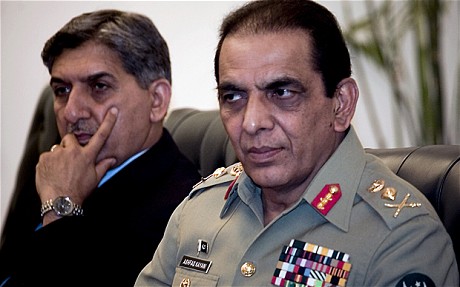Nearly fifty years ago the US Supreme Court ruled in Brady v Maryland that prosecutors were required to turn over to the defense any evidence favourable to the accused and material to his guilt or punishment. The so-called Brady requirements. The Court has now undermined those requirements in Connick v Thompson by finding that a District Attorney’s office was not liable for failing to train its lawyers about this duty. In other words, inexperienced lawyers recruited into the DA’s office straight from law school were able to suppress evidence that would have proved the innocence of an accused man and the DA, who himself didn’t understand what Brady required, and others on his staff who didn’t know or didn’t care about it either, have been exonerated by the Supreme Court.
It means that an important protection against injustice has been removed because while the law stipulates the Brady requirements, it doesn’t seem to matter if lawyers don’t know about them or their scope and nobody makes any effort to train them about what they need to know.
It’s not a purely academic matter as the astonishing details of the case reveal.
Thompson was arrested for a murder he did not commit, despite bearing no resemblance to the eyewitness description of the killer. When his photo appeared in the newspapers after the arrest, the father of three siblings who had been the victims of an armed robbery showed the photo to his children who identified him as their attacker. They then went to the police station where the children picked out an identical photo of Thompson in a “photographic lineup”.
In the scuffle that took place during the robbery, some blood from the attacker stained the trouser leg of one of the victims. This stain was found to be blood type “B”. Thompson was type “O”.
The date for Thompson’s murder trial had already been set, but the DA’s office switched the order because they had a plan. He was to be tried for the robbery first with the deliberate intention that his conviction would prevent him from taking the stand in his own defence at the murder trial. Furthermore, a lengthy prison sentence for a robbery conviction would be used as grounds to demand the death penalty for the murder. This strategy worked. And as Justice Ginsburg wrote in dissenting:
During jury deliberations in the armed robbery case, Williams, the only Orleans Parish trial attorney common to the two prosecutions, told Thompson of his objective in no uncertain terms: “I’m going to fry you. You will die in the electric chair.”
Thompson spent 18 years in prison, 14 of them in an isolation cell on death row, and came within a month of his execution before a private detective found the first piece of missing evidence, the results of the blood test. Not only had the DA’s attorneys failed to notify the defense of the blood test, but they removed the sample and later destroyed it. That would have cleared him of the robbery charge.
In the murder trial that followed, they withheld the eyewitness statement which described a different man as well as tape recordings of another witness negotiating with the family of the murder victim who had offered a reward, and evidence that the other key prosecution witness (who was most likely the real killer) had given contradictory statements to the police. Thompson was never able to challenge any of that because he didn’t know about it despite the Brady rules requiring that his defense attorney must be told. He was stitched up.
He was sentenced to 49.5 years without parole for the robbery, and as a result the DA was able to urge that with a near-life sentence already, the only way to punish him for the murder was with the death penalty. The DA and his trial attorneys had every reason to believe that Thompson was innocent on both counts.
Despite a catalogue of Brady violations over a twenty year period, the Supreme Court has ruled that this was a one-off, not a routine practise. The vote was 5-4 that the DA was not liable for failing to train his lawyers.
The DA’s ignorance of the law apparently excuses his attorneys’ ignorance of the law. The Supreme Court says so.


